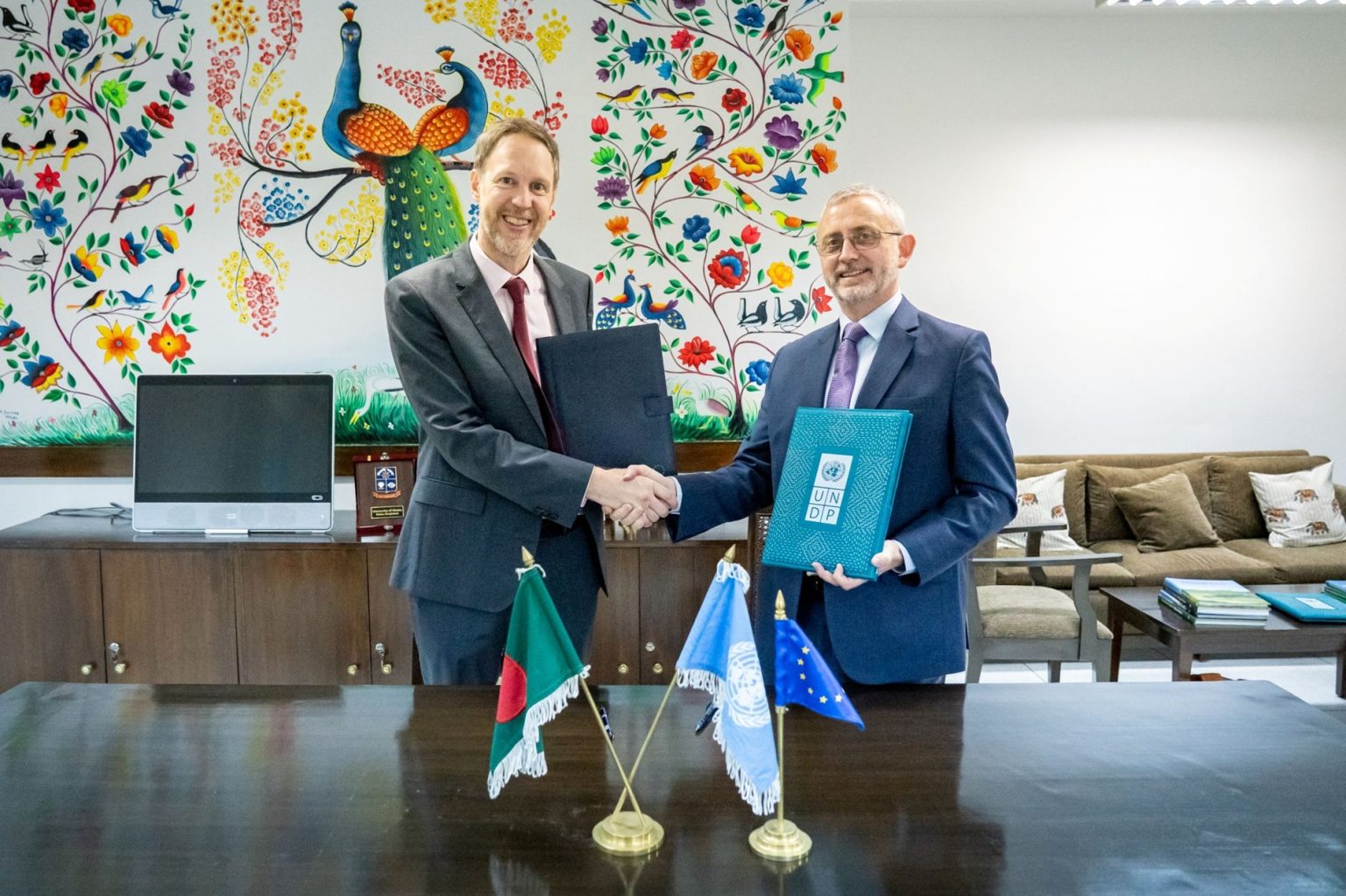The United Nations Development Programme (UNDP) Bangladesh and the European Union (EU) signed an agreement on May 15 to accelerate the digitisation of legal aid services across the country. The agreement was signed at the European Union Delegation office in Dhaka by Stefan Liller, Resident Representative of UNDP Bangladesh, and Michael Miller, EU Ambassador to Bangladesh.
This partnership aims to make legal aid faster, more accessible, and more inclusive by leveraging digital platforms and community outreach. The initiative will introduce an integrated legal aid system that includes mobile-based applications, online case tracking and virtual mediation, enabling citizens in remote and marginalised areas to access legal services without physically visiting courts, says a UNDP media release.
“Aligned closely with the ongoing justice sector reforms that UNDP and the EU are currently supporting, it builds upon our long-standing partnership in strengthening Village Courts, which already play a crucial role in resolving local disputes and serving rural communities,” remarks Stefan Liller.
EU Ambassador Michael Miller said, “This agreement reflects the strong and ongoing partnership between the Government of Bangladesh, the European Union, and UNDP to improve access to justice for all. Whether through Village Courts or through new digital innovations, our joint efforts are helping to build a justice system that is more efficient, inclusive, and responsive to the needs of the people, especially the most marginalised.”
The Government of Bangladesh, through the National Legal Aid Services Organisation (NLASO), will implement the initiative in partnership with UNDP and the EU. The collaboration aligns with the country’s 8th Five-Year Plan and supports Sustainable Development Goals, particularly SDG 16 on peace, justice and strong institutions.
The project will initially be piloted in eight districts, reaching more than 680,000 disadvantaged individuals. It will focus on ensuring that services are not only available online, accessible via phone, SMS, and online portals, but also inclusive, gender-responsive, and tailored to users with limited digital literacy.


